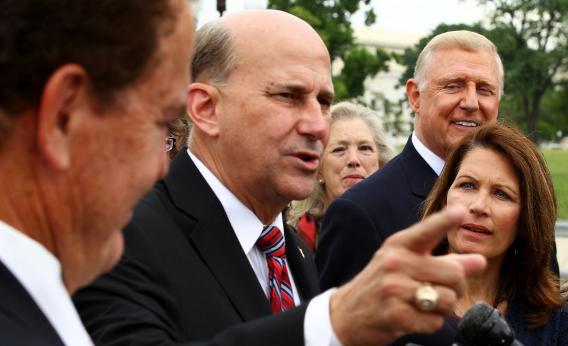My new story on this Time of Scandal delves into the history of politics and tax-exempt groups. Until very recently—by which I mean “until last week”—both parties seethed at the outrage of obviously political groups getting tax exemption and then playing in the public sphere with secret donor cash.
“Once they force you into this funnel to have that legal status,” said Texas Rep. Louie Gohmert, “then you’re hassled and abused.”
But a lot of activists want or need to jump into that funnel. For that reason, said Georgia Rep. Paul Broun, “The IRS needs to be nonpartisan.”
Be nonpartisan, sure—but how?
“They need to look at any group that qualifies for 501(c)(3) or 501(c)(4) status and give it to him.”
There’s also an irony running through the last two days of Tea Party complaints about the hassling from the IRS. You hear that the scrutiny, by slowing down the groups’ activities, affected the 2012 election. It’s just assumed that these social welfare groups were going to have a political impact, and that’s normal.
